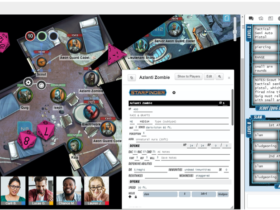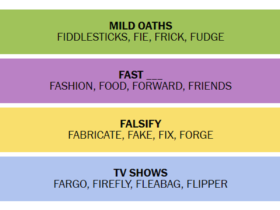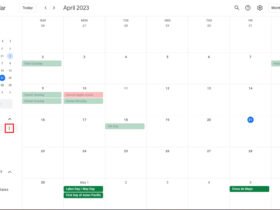Mastering the art of spelling is an essential skill in the English language, pivotal for effective communication, academic success, and professional credibility. This comprehensive guide delves into strategies and insights aimed at enhancing spelling proficiency. With a focus on practical techniques, understanding the complexities of English spelling, and leveraging modern tools, this article serves as an essential resource for anyone looking to improve their spelling skills.
Understanding the Complexity of English Spelling
English spelling is renowned for its complexity, with its vast array of rules, exceptions, and influences from other languages. This diversity stems from the rich history of English, which has absorbed elements from Latin, French, Germanic languages, and more. To navigate this complexity, it’s crucial to understand the origins and structures that govern spelling. Phonics, the relationship between sounds and their corresponding letters or groups of letters, is a foundational concept. However, English is not entirely phonetic, making memorization of certain patterns and exceptions inevitable.
Phonetics and Phonology
A good starting point in mastering spelling is the study of phonetics and phonology—the sounds of the language and their patterns. This knowledge helps in understanding why words are spelled the way they are, especially when dealing with phonetic inconsistencies. For instance, the “ough” in “though,” “through,” “thought,” and “tough” demonstrates the challenge of predicting spelling based on sound alone.
Morphology
Morphology, the study of word formation and structure, is another crucial aspect. Understanding prefixes, suffixes, and roots can greatly aid in spelling. For example, knowing the root “spect” helps in spelling words like “inspect,” “spectator,” and “respect,” despite their phonetic differences.
Strategies for Improving Spelling
Improving spelling requires a multifaceted approach, incorporating various strategies tailored to individual learning styles. Here are some effective techniques:
Active Reading and Writing
Engagement with language through active reading and writing is fundamental. Encounter words in diverse contexts, note their spelling, and use them in writing. This practice not only reinforces memory but also enhances vocabulary and grammatical skills.
Use of Spelling Rules
While English has its share of exceptions, certain spelling rules can be incredibly helpful. For example, the “i before e except after c” rule, despite its exceptions, aids in spelling a significant number of words correctly. Familiarizing oneself with such rules can provide a reliable framework for spelling.
Mnemonic Devices
Mnemonics are creative ways to remember spellings by associating words with phrases, patterns, or meanings. For instance, remembering “arithmetic” with “A Rat In The House May Eat The Ice Cream” can make spelling more fun and memorable.
Repetition and Practice
Repetition is key to mastering spelling. Regular practice through writing, spelling exercises, and tests can solidify one’s ability to spell correctly. Utilizing spelling apps or online platforms can make this practice more engaging and effective.
Leveraging Technology to Improve Spelling
In the digital age, numerous tools and resources are available to assist in improving spelling:
Spell Checkers and Grammar Tools
Spell checkers, available in word processors and online, are useful for identifying and correcting spelling errors. However, reliance on these tools should be balanced with active learning to ensure deeper understanding and retention.
Educational Apps and Games
Educational apps and games designed to improve spelling are both entertaining and instructive. They offer a dynamic approach to learning, adapting to the user’s level and focusing on areas that require improvement.
Online Dictionaries and Resources
Online dictionaries are invaluable for immediate spell checks and understanding word meanings and pronunciations. Websites dedicated to spelling and grammar also provide exercises, quizzes, and tips tailored to all levels of proficiency.
Conclusion
Mastering spelling is a journey that enhances one’s ability to communicate effectively and confidently. By understanding the complexities of English spelling, adopting practical strategies, and leveraging modern tools, individuals can significantly improve their spelling skills. Remember, improvement in spelling is gradual and requires patience, persistence, and practice. Embrace the challenge, and celebrate the milestones along the way to becoming a proficient speller.
In navigating the intricate landscape of English spelling, one learns not just about letters and sounds but about the rich tapestry of language itself. This journey not only bolsters one’s writing and reading abilities but also deepens one’s appreciation for the nuances and beauty of the English language. Whether for academic purposes, professional advancement, or personal growth, pursuing spelling excellence is a worthy endeavor, opening doors to clearer expression and richer communication.
FAQs on Mastering Spelling
1. Why is good spelling important?
Good spelling is crucial for effective communication. It ensures clarity, prevents misunderstandings, and enhances the credibility of your writing. In academic and professional settings, proper spelling reflects attention to detail and mastery of language skills.
2. Can I improve my spelling at any age?
Yes, it is possible to improve your spelling at any age. Like any skill, spelling can be enhanced through practice, exposure to language, and the use of educational tools and resources. The key is consistency and a willingness to learn.
3. How do I remember difficult spellings?
Remembering difficult spellings can be achieved through various techniques such as mnemonic devices, breaking the word into syllables, learning the word’s origin (etymology), and regular practice in writing. Flashcards can also be a helpful tool for memorization.



















